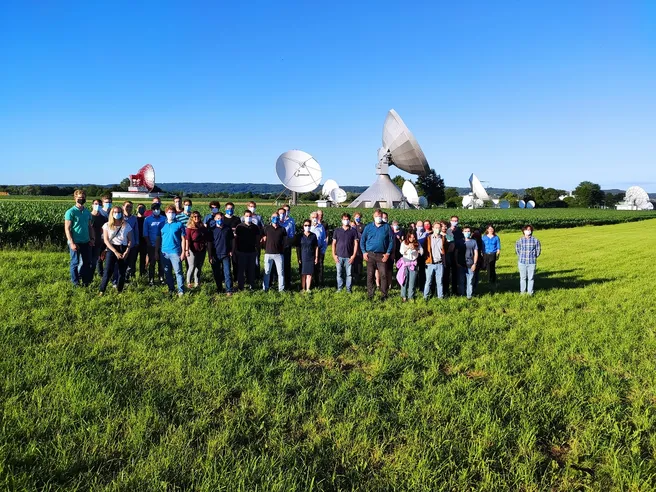Experience teaches that creative ideas are best developed in joint, intensive discussions in a relaxed atmosphere away from the daily demands and routines. It is therefore a long tradition that the utg family retreats once a year for two days for a workshop. So it was a great pleasure to be able to travel to the Haus der bayerischen Landwirtschaft in Herrsching in this extraordinary Corona year. Prof. Volk had invited not only the chair's doctoral students but also his foundrymen from the Fraunhofer IGCV who are doing their doctorates.
The first day was dedicated to strategy and research topics. In a poster session, everyone was able to get a picture of the current research activities of the colleagues. In the afternoon, Prof. Tim Lüth from the Chair of Microtechnology and Medical Device Technology gave us the opportunity to look beyond our own noses. In an extremely interesting and entertaining lecture he gave us an insight into the field of medical technology and robotics.
But how do you organise a social evening event under the guidelines of Corona Prevention? The preparation team gave a lot of thought to this and finally decided to visit the earth station in Raisting. In bright sunshine Mr. Herrmann Martin gave us an exciting insight into the impressive history of the earth station. It already played a role during the moon landing in 1969, as well as during the Cold War and today's global satellite connections. The weather god also meant it well with us later, so we could sit together for a long time outside on the terrace, of course with the necessary distance.
The next day, we had a concentrated discussion about internal topics concerning the laboratory, administration and IT. Mr. Volk also reported on current developments within the Faculty of Mechanical Engineering.
After the rather dry topics in the morning, the afternoon offered plenty of space for creativity. Whether the application possibilities of AI, alternative tool concepts, new simulation methods or casting processes in the workshops, there was plenty of room for exciting discussions. Here we were able to generate some promising ideas, which will now be incorporated into new research proposals. In the future, we want to focus on the challenges and possibilities of AI and digitization. Especially in the research fields of forming technology and foundry, which are often referred to as the "old economy", there is still a lot of unused future potential.
